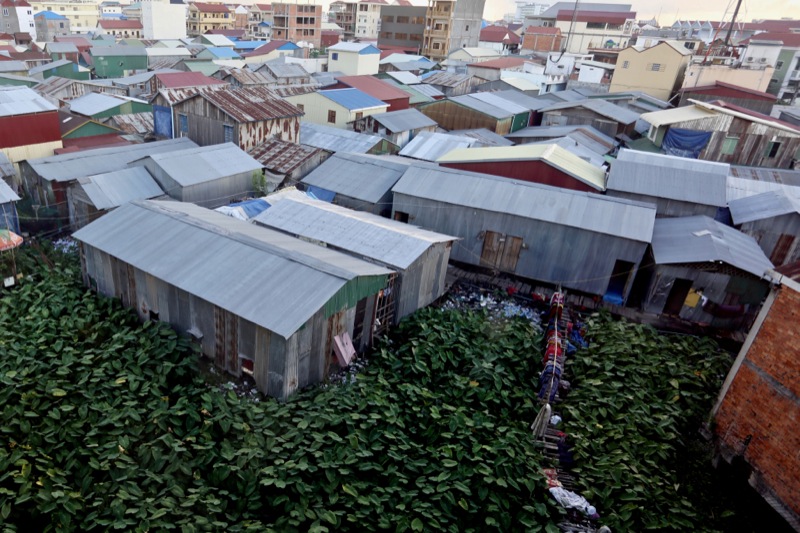Cambodia’s already overstretched prisons are being pushed to the “point of collapse” by an influx of inmates from the government’s six-month war on drugs, a human rights advocate said on Thursday.
Chak Sopheap, director of the Cambodian Center for Human Rights (CCHR), said the overcrowding was causing serious problems.

“We have received many reports of prisoners’ health conditions noticeably deteriorating due to increasingly cramped and inhumane conditions,” Ms. Sopheap said in an email.
The government’s anti-drug campaign has “pushed an already overstretched prison system to the point of collapse,” she said.
Ms. Sopheap was responding to an admission by Huy Hoeun, deputy director of the government’s general department of prisons, who said the nationwide crackdown has caused Cambodia’s prison population to balloon, with inmates being transferred to different provinces to tackle overcrowding.
According to Mr. Hoeun, there are currently 25,000 inmates in 27 prisons across the country. He said the influx of inmates was mostly due to the government’s aggressive anti-drug campaign, which kicked off in January and has so far netted more than 8,000 people for drug-related crimes.
For the past several months, prisoners from across the country have been transferred to Kompong Cham province’s Correctional Center 3 and Pursat province’s Correctional Center 4, which is still under construction, Mr. Hoeun said.
“We transfer inmates every two or three months, otherwise it’s overcrowded,” he said.
Another 200 prisoners were to be sent to the Pursat facility—which is currently housing 200 inmates, but is expected to hold 7,000 by the time it is completed—once Interior Minister Sar Kheng approves the latest transfer, he said. He expected approval to take no longer than a week.
He said the compound included four “branches,” each with eight buildings, and that 90 percent of just one branch was finished. He said he did not know when the entire center would be complete, and attributed slow construction to the approval process.
“It has been slow on budget processing at the Interior Ministry,” he said.
The most overpopulated prison is Phnom Penh’s Prey Sar, Mr. Hoeun said, but did not give a breakdown of figures.

Between the end of last year and now, the country’s prison population has increased by 20 percent, he said, with the anti-drug campaign contributing to most of that. In contrast, prisoners increased by just 6 to 7 percent between 2006 to 2014, he added.
Mr. Hoeun also attributed the overcrowding to Prime Minister Hun Sen halting a prison pardon program that might have reduced jail terms. Mr. Hoeun couldn’t be reached later to elaborate further.
According to Ms. Sopheap, the overcrowding also could be compounded by the court’s “systematic” overuse of provisional detention.
“According to Cambodian and international human rights law, pre-trial detention should only be imposed in exceptional circumstances,” she said, adding that judges’ decisions to detain people as they await trial has “enormous implications for the right to be presumed innocent.”
Meanwhile, Duch Piseth, advocacy director of CCHR, said the government had an obligation to ensure the work-in-progress prison in Pursat province was up to standards.
“The authorities need to ensure every detention facility…meets minimum standards ranging from health care to rehabilitation,” he said.
Sou Sochenda, a manager at Khana, an NGO that supports voluntary drug treatment programs, said the government was wasting time and money by putting away low-level offenders.
“The government should not invest that significant financial and human resources on policing, prosecuting, and imprisoning low-level offenders, rather than focusing on high level trafficking and organized crimes,” she in an email.
The government was advised to address prison overcrowding in 2013, when it was discussing its 2013 to 2018 strategic plan for Cambodia’s jails with the U.N. and NGOs.
Correction: Earlier version of this article incorrectly stated that there are currently 250,000 inmates.



